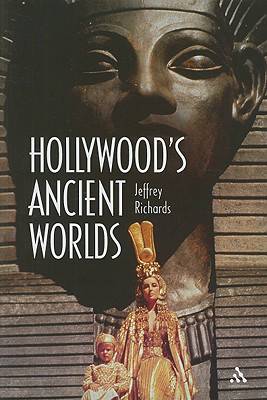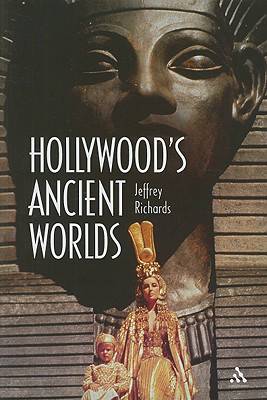
Bedankt voor het vertrouwen het afgelopen jaar! Om jou te bedanken bieden we GRATIS verzending (in België) aan op alles gedurende de hele maand januari.
- Afhalen na 1 uur in een winkel met voorraad
- In januari gratis thuislevering in België
- Ruim aanbod met 7 miljoen producten
Bedankt voor het vertrouwen het afgelopen jaar! Om jou te bedanken bieden we GRATIS verzending (in België) aan op alles gedurende de hele maand januari.
- Afhalen na 1 uur in een winkel met voorraad
- In januari gratis thuislevering in België
- Ruim aanbod met 7 miljoen producten
Zoeken
Omschrijving
Jeffrey Richards examines the cultural, social, economic and technological circumstances that dictated the rise and decline of each successive cycle of Ancient World epics, from the silent film era, to the "golden age" of the 1950s, right up to the present day (Gladiator, 300, Rome). Analysis reveals that historical films are always as much about the time in which they are made as they are about the time in which they are set. The ancient world is often used to deliver messages to the contemporary audience about the present: hostility to totalitarian regimes both Fascist and Communist, concern at the decline of Christianity, support for the new state of Israel, celebrations of equality and democracy, and concern about changing gender roles. The whole adds up to a fresh look at a body of films that people think they know, but about which they will learn a good deal more.
Specificaties
Betrokkenen
- Auteur(s):
- Uitgeverij:
Inhoud
- Aantal bladzijden:
- 240
- Taal:
- Engels
Eigenschappen
- Productcode (EAN):
- 9781847250070
- Verschijningsdatum:
- 1/09/2008
- Uitvoering:
- Hardcover
- Formaat:
- Ongenaaid / garenloos gebonden
- Afmetingen:
- 157 mm x 234 mm
- Gewicht:
- 521 g

Alleen bij Standaard Boekhandel
+ 259 punten op je klantenkaart van Standaard Boekhandel
Beoordelingen
We publiceren alleen reviews die voldoen aan de voorwaarden voor reviews. Bekijk onze voorwaarden voor reviews.









